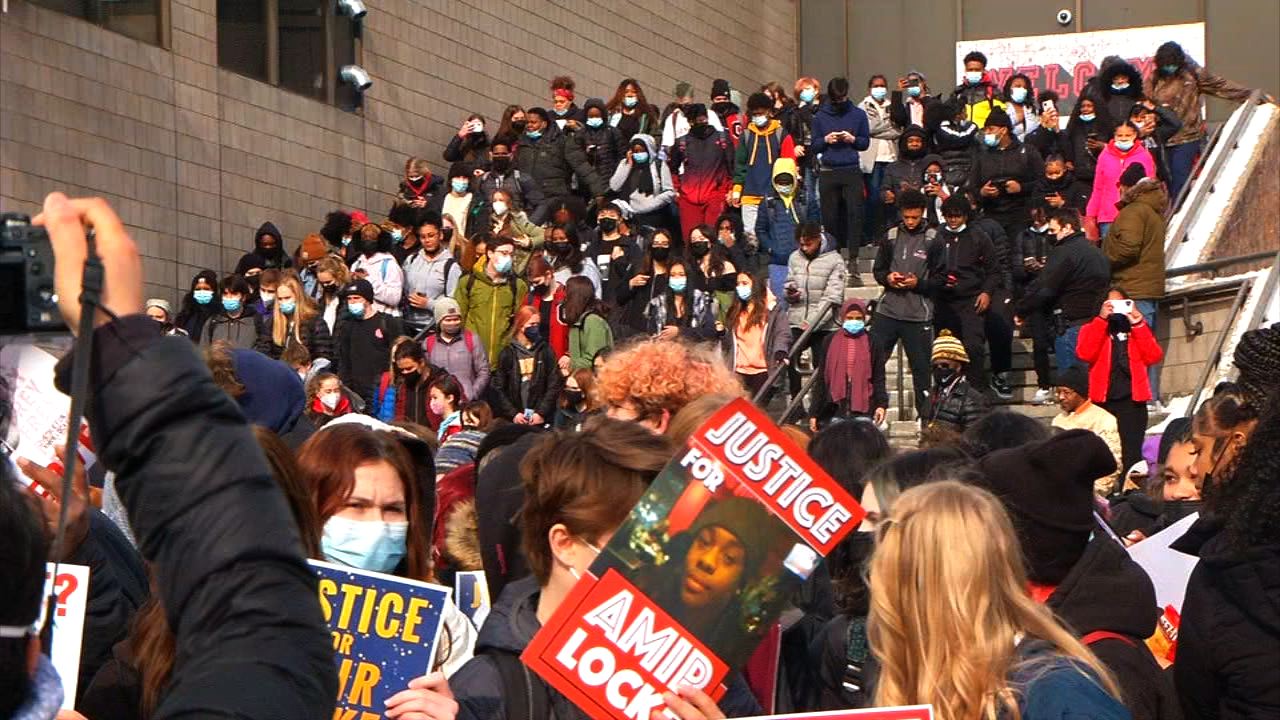As Locke death sparks calls for change, commission reviews no-knock policy
[anvplayer video=”5088317″ station=”998122″]
It’s been nearly a week since the shooting death of Amir Locke and there are continued calls for policy changes and resignations of Minneapolis leaders.
Locke was shot and killed last Wednesday morning by a Minneapolis police officer while the department was executing a search warrant connected to a St. Paul homicide investigation.
Multiple protests were held Tuesday, starting with one led by students at Central High School in St. Paul.
Students walked out of class just before noon and made their way to the Governor’s Residence to call for policy change at the Minneapolis Police Department, a ban on no-knock warrants and the resignation of both Minneapolis Mayor Jacob Frey and interim Police Chief Amelia Huffman.
At night, several hundred protests met outside the Hennepin County Government Center to demonstrate, eventually making their way through downtown and ending outside the Bolero Flats Apartment Complex, where Locke was shot. Protesters called for the officer who shot Locke to be arrested, and also for the resignation of Frey and Huffman.

Students stage a walk-out protest over the police killing of Amir Locke on Tuesday, Feb. 8, 2022, at Central High School in St. Paul.
Also Tuesday night, the city’s Police Conduct Oversight Commission had its monthly meeting. While it wasn’t on the agenda, the police department’s no-knock warrant policy was discussed.
The commission has been working with the Office of Police Conduct Review since last year on a study surrounding the use of no-knock warrants over the past two years.
When asked about that work, commissioner Robert Pineau told 5 EYEWITNESS NEWS it will be discussed in more detail during their Police Conduct Oversight Commission Audit Subcommittee meeting on Feb. 28.
“Right now, the most up-to-date version of what we’re doing is going to be taking a look at that report and see what meaningful differences we can find between announced and unannounced warrants,” Pineau said. “And then [we’ll] talk to the City Council and share that report with the police department so that they’re aware of those meaningful differences if there are [any].”